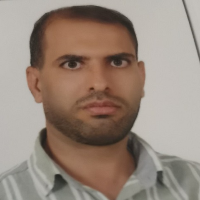The Exploration Qualitative Ways to Improve Work Culture Case Study: University of Boroojerd Experts
Author(s):
Abstract:
Upgrade country and national productivity made possible in the light of shadowing work and it can be achieved through the man's efforts, work demands, and progressive work culture. Advanced work culture can be appropriate for hard work, creativity, innovation, commitment and responsibility. Social consciousness and discipline among the people. This study seeks to improve understanding of various aspects of the work culture of academic experts through the constructionism approach and grounded theory. The target population of research is all the experts of Borujerd University. By using purposive and theoretical sampling, 40 people were selected. The research data is collected using semi structured interviews. Results show that eight categories of participation, recognition, reward system, job qualification, empowerment, acculturation, innovation and negotiation about the role are the solutions for increasing work culture. Then, aspects of the nuclear issue as a "DeconStruction Strategic work space" were drawn and discussed. Among which, acculturation and reward systems have the greatest impact.
Keywords:
Language:
Persian
Published:
Journal of Economic Sociology and Development, Volume:4 Issue: 2, 2016
Pages:
49 to 74
https://magiran.com/p1664778
مقالات دیگری از این نویسنده (گان)
-
Phenomenological Study of Women's Lived Experience in Polygamous Families
Malihe Rahmanian, *, Yaser Rastegar
women s studies (Sociological & Psychological), -
Validation of the Social Well-being Scale in an Iranian Sample
*, Hassan Khezri
Iranian Journal of Educational Research, Autumn 2023 -
A Meta Synthesis of disability studies and the pattern governing the social life of people with disabilities
iyan, Mohammad Ganji*, Narges Nikkhah Qamsari
Social Welfare Quarterly, -
Investigating the Effect of Teacher's Teaching Method in Improving Students' learning in Virtual Space (philosophy course action research)
iyan, Fatemeh Taherpour *
New Educational Approaches,



